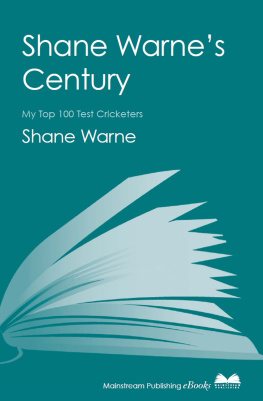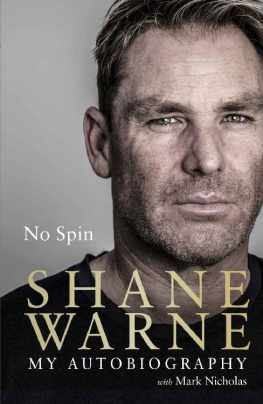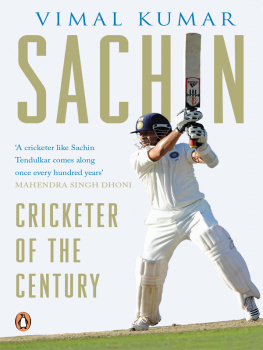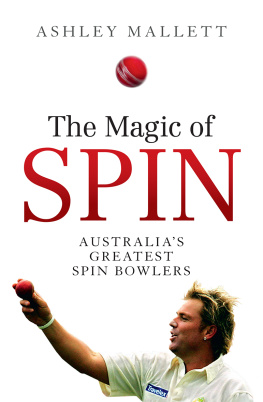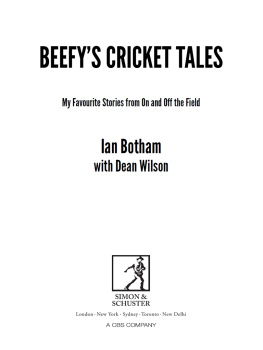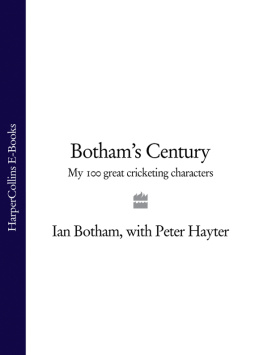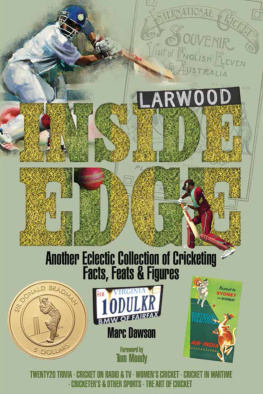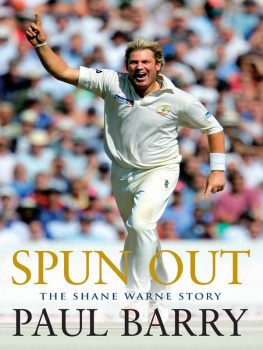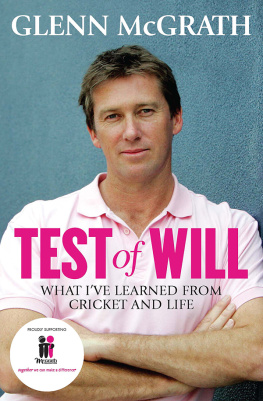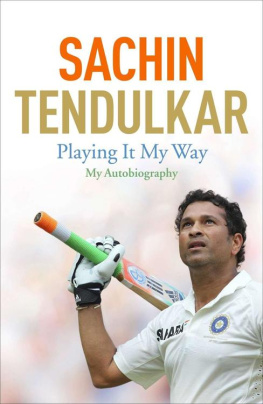SHANE WARNES CENTURY
MY TOP 100 TEST CRICKETERS
Shane Warne
This eBook is copyright material and must not be copied, reproduced, transferred, distributed, leased, licenced or publicly performed or used in any way except as specifically permitted in writing by the publishers, as allowed under the terms and conditions under which it was purchased or as strictly permitted by applicable copyright law. Any unauthorised distribution or use of this text may be a direct infringement of the authors and publishers rights and those responsible may be liable in law accordingly.
Epub ISBN: 9781845969530
Version 1.0
www.mainstreampublishing.com
This edition, 2009
Copyright Shane Warne, 2008
All rights reserved
The moral right of the author has been asserted
First published in Great Britain in 2008 by
MAINSTREAM PUBLISHING COMPANY
(EDINBURGH) LTD
7 Albany Street
Edinburgh EH1 3UG
ISBN 9781845964511
No part of this book may be reproduced or transmitted in any form or by any other means without permission in writing from the publisher, except by a reviewer who wishes to quote brief passages in connection with a review written for insertion in a magazine, newspaper or broadcast
A catalogue record for this book is available from the British Library
FOREWORD
Sir Michael Parkinson
IF I EVER SAT DOWN TO make a list of the 100 best cricketers I have observed in a lifetime (60 years or more) watching the game, I would put Shane Warne at the top of my list. Like Tiger Woods and Muhammad Ali in other sporting occupations, he didnt so much dominate the game as redefine it.
As a cricketer, he belongs in a select category that includes Donald Bradman, W.G. Grace and Viv Richards players not simply masters of their craft, but also able to dominate the opposition by the force of their willpower as well as their abundance of talent. When Warne was given the ball particularly against the Poms the pulse rate of the game quickened, the crowd sat forward in expectation, the bars emptied. What the batsman knew was that his great gifts as a bowler the prodigious spin, the accuracy and the ability to be both an attacking bowler as well as a frugal one was only part of what they had to deal with. No cricketer of my acquaintance brought to the game his capacity for dominating opponents and exploiting their frailties both technical and psychological with such precision and intelligence. He once told me the story of one international player who was so dominated by Warnes mastery that he sought psychological help. Upon his return to the Test match arena, he was confronted by Warne, who, instead of the expected sledging, greeted him with the polite enquiry: What colour was the psychiatrists couch, mate?
Shane Warne brought a sense of theatre and drama to cricket, and some of it spilled over into his private life. For a time, he became celebrity-tabloid fodder. Moreover, the wear and tear on his body caused him to refine his bowling action and to rethink his repertoire. He survived it all to have taken more Test wickets than any other bowler at the time he left the game. When he departed the field of play, it was as if the floodlights had been switched off. Perhaps his most significant contribution was that he changed the tempo of cricket. When he first appeared, the game was dominated by fast bowlers, and spinners were considered an endangered species. By the time he had retired, he had not only shown repeatedly what we had been missing, but demonstrated, as Wisden put it: That a man could take wickets by seduction as well as extortion.
He is an agreeable, if not exhausting, companion, and I am delighted to be his friend. The 100 Test cricketers he has chosen in this book should also be delighted by the knowledge that they have been selected by one of the greatest of them all.
INTRODUCTION
NOTHING KICKS OFF AN ARGUMENT MORE quickly than claiming that a particular singer, a TV cop or even a flavour of crisps is better than another. For every viewpoint there will be somebody else in your group who holds the opposite view and isnt afraid to express it. Over the years, in bars, dressing-rooms, departure lounges anywhere and everywhere cricket and cricketers have split opinions and created debate. In the end, they are opinions and not right or wrong.
When I wrote an article in The Times of my top 50 players, and a brief summary of each, the feedback was amazing. In Pakistan, they thought Id put Waqar Younis too far down the list. In Australia, they wondered why Mark Taylor was above Steve Waugh. In South Africa, they thought Id snubbed Allan Donald and in India they revelled in Sachin Tendulkars position at the top of the tree.
The idea for this book came from all those emails and letters. I thought it would be a good idea to explain some of my selections in more depth and, to get people talking for a little bit longer, go the full hog and pick 100 players: Shane Warnes Century. Ill admit that some of the positions have changed. A few of the guys I chose in 2007 are now out of my 50, but still in the 100. One or two have gone up and some have gone down. Thats the great thing about lists no matter how long you have, there is always a bit of fine-tuning to be done. Ill back that up with a challenge: when youve finished reading this book and not before write down your top ten records of all time and put the sheet of paper somewhere safe. Do the same thing a few months later, and then compare the two. Ill be amazed if the lists are exactly the same. It has taken several months to put my 100 names in place and if the publishers had not imposed a deadline I would still be tinkering now.
I want to stress that this is purely a personal choice. There is no right or wrong. Ive put Mark Waugh above his brother, for instance. But there are a few general things I can say straight away to try to make sense of my selections. First, Ive gone on battles, influences on the game, bowling to them or facing them with the bat, rather than figures alone. Yes, Ive checked a few things, but Ive made sure that the record books are a servant rather than a master. Statistics do not always tell the full story; there are plenty of examples of that in these pages.
I guess there is also a bias in the book towards match-winners and players who have entertained and the aggressive style they played, not to mention the input they had on their opponents or what impact an opposition player had on us and me as a bowler. No apologies there. The game needs characters who can excite crowds. We are facing stiff competition from other sports these days. I have also taken into account areas such as longevity of career thats one reason why the incredible Courtney Walsh is so high and consistency of performances all over the world and in different conditions. A truly great player can adapt to different pitches and conditions. Brian Lara is a good example: he has struck big hundreds in England, Australia and the Indian subcontinent. Test cricket has been my biggest consideration because I still feel that is the supreme form of the game and a true test of your character, technique and mental strength. But a few of my hundred have probably made more of a mark in one-day cricket, and I even took Twenty20 performances into account. Again, though, the best players can adapt to all formats.

